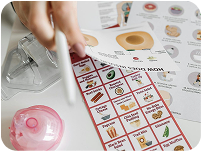Learning
As a Professor at the University of Michigan School of Public Health, Dr. Patel has established herself as a national leader in research on financial burden, healthcare affordability, and non-medical drivers of health.
Online Courses

History of Racial Inequity in Healthcare
This course, part of the Addressing Racial Health Inequity in Healthcare certification, covers the role of public health in healthcare, the social and biological perspectives on the concepts of race and racism, and the history of unequal treatment in the U.S.

Causes of Racial Inequity in Healthcare
This course, part of the Addressing Racial Health Inequity in Healthcare certification, explores a survey of critical drivers of racial inequities in healthcare — known in order to implement interventions that can reduce unequal treatment.

Achieving Health Equity in Healthcare
This course, part of the Addressing Racial Health Inequity in Healthcare certification, delves into the strengths and challenges of an array of approaches that are used to addressing racial inequity in healthcare.
University Courses

HBHEQ641: Materials and Methods in applied health communication
This course provides a hands-on experiential learning process to build understanding of effective design and use of health communication materials through both individual assignments and a team-based project conducted in cooperation with community-based organizations locally and nationally.

HHCR 700: Social, Cultural, and Behavioral Aspects of Health
This course introduces students to methods for evaluating critical issues in health and health care from a behavioral, societal, and cultural perspective. Students examine the use of the behavioral and social sciences and humanities to study health and health care, including evaluations of past research and suggestions for future work.

HBHEQ600: Psychosocial Factors in Health-related Behavior
This course provides an overview of the psychosocial determinants of behavioral risk factors that affect health. We address these determinants within theories, models, and frameworks of health-related behavior.
Great historical materials presented in this course. I am so happy I took this course to learn about the history of healthcare and racial inequities in the United States.
Student review posted in Coursera
My Instructional Approach
Foundational Skills
Make sure you master the basics first because they're the building blocks that make everything else possible. With a strong foundation, you'll feel confident tackling more complex projects and have the tools to keep growing your skills.
Learn by Doing
Use project-based learning where you work on meaningful projects that mirror real-life challenges. Instead of just studying theory, you'll create, build, and solve problems that give you practical experience you can immediately apply.
Real World Impact
My project-based approach means you're always working on something that connects to actual situations you'll face. The projects you complete become portfolio pieces and skills you can use right away in your personal and professional life.

Other ways to work with me

Consulting
Strategic guidance to help advocates and organizations reduce patient burden and turn evidence into practical, lasting healthcare solutions.

Speaking
Keynotes, panels, and workshops on breaking down cost, complexity, and barriers to better support patients in real-world healthcare.